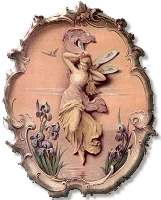
Apple Orchard Convention: 13 June 1884
• 759 registered women voters in Seattle convened
• decided on their platform
• next election they voted en masse
• they demanded the laws be enforced & houses of prostitution closed down
• they forcefully came against liquor, gambling & prostitution (the major areas of revenue for Seattle)
read ... Bold Spirit by Linda Lawrence Hunt, University of Idaho Press, Moscow, Idaho, 2003 ISBN 0-89301-262-9
From "Frontier Women in Washington":
To understand the Western experience, you must realize that the wife of a homesteading family was truly a renaissance woman. She was venerated by both the profane and the profound as the Madonna of the frontier (please do not confuse her with the pop singer). Even if Joe Blow really believed he was escaping problems with women back on the Missouri or the Mississippi, he soon missed his water when he realized how dry the local matrimonial well was. Even some of the most bigoted Democrats wound up taking an Indian squaw as their klootchman, a Chinook Jargon word for today's chauvinistic terms such as the old lady, or maybe the main squeeze. When proper young white women such as the Mercer Girls showed up years later, the klootchman was sometimes pitched back to the newly formed Swinomish reservation. If she was lucky, her husband built a shanty behind the main house where she could baby-sit her progeny. By the time that Washington territory became a state in 1889, many white men had married Indian women in tribal ceremonies. A new state law legitimized such marriages but it also required that the couples remarry in a U.S. civil ceremony, or else the spouse had to be sent away.
The pioneer wife, such as Wilhelminia "Minnie" von Pressentin or Georgetta Savage had to prepare for their families living in remote wilderness for many months of every year. Georgetta must have been frightened nearly to death when she had to load her babies and all their bedding and furniture onto flimsy looking cedar canoes and then be rowed up the Skagit river in pouring rain. Her initial reward was to fall into the drink. Minnie discovered a sewing machine for sale in Mount Vernon before heading upriver to meet her husband, Karl, so she bought it on the spot and it was one of her most valued possessions.
Educated and politically aware women, such as Georgiana Batey and Eliza Van Fleet, must have cheered when the Washington territorial legislature ignored the suffrage restrictions in most states and granted women the right to vote on Nov. 23, 1883. The men learned, too late, how well women could organize, because the 759 registered women voters in Seattle convened an "Apple Orchard Convention" on June 13, 1884, and ran a reform ticket for the city council. They voted en masse and their reform ticket of "sober, honest and efficient" candidates all won.



